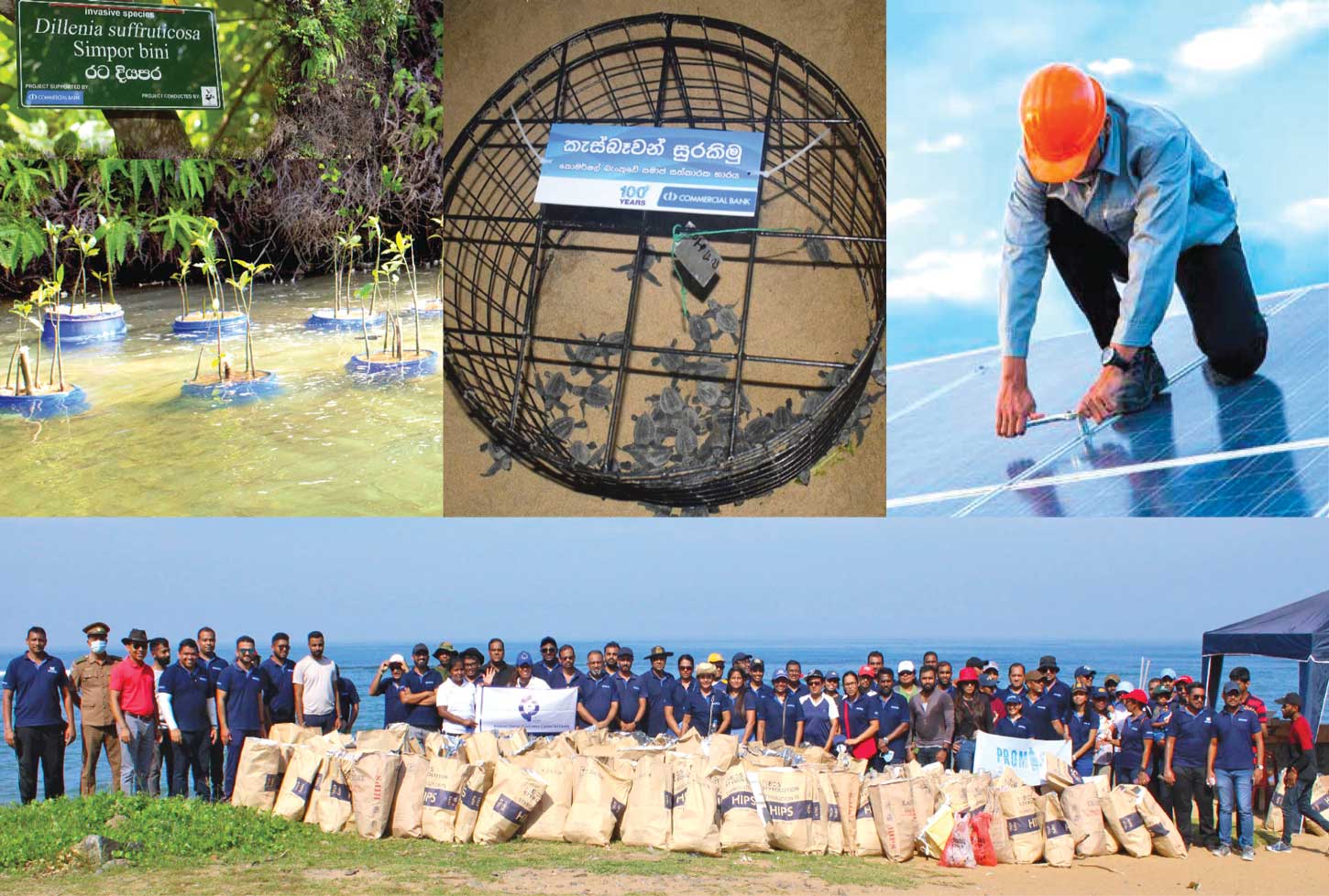CORPORATE PROFILE
COMMERCIAL BANK

Managing Director
Chief Executive Officer
Q: How does your organisation define corporate sustainability?
A: Corporate sustainability is focusing on the long-term growth that works cohesively with people and the planet. The main objective of such a strategy should be long-term value creation for all stakeholders, whilst maintaining a sustainable and positive bottom line for the business.
Sustainability is specifically crucial in the prevailing macroeconomic environment. An organisation driven by corporate sustainability would be resilient in facing hitherto unforeseen challenges with improved risk mitigation and cost optimisation, and would possess higher levels of brand value and stakeholder confidence.
At Commercial Bank, corporate sustainability is the thread that weaves through long-term strategic planning across different business verticals, holding it together to achieve the common goal.
Our approach to corporate sustainability is diverse and multifaceted, engaging all stakeholders.
Q: How important is it to merge sustainability-related measures into key performance indicators (KPI)?
A: Corporate sustainability should not be a mere aesthetic feature in the communications plan but rather, a catalyst of organisation-wide change. As in any business-related area, sustainability indicators should be monitored closely and accountability is of paramount importance.
Commercial Bank follows a meticulously crafted sustainability strategy and blueprint as the guiding principle in its sustainability strategies. It is based on three key pillars: sustainable banking, responsible organisation and community impact. There are eight core areas under these pillars, all aligning with seven selected Sustainable Development Goals (SDGs) set by the UN.
The corporate plan and annual business objectives of our strategic business units (SBUs) are aligned with sustainability targets. Targets are derived, based on each function’s core activities and the degree of relevance for the achievement of the bank’s sustainability goals.
And related measurement mechanisms include quarterly sustainability dashboards presented to the management – and internal dashboards compiled by the Sustainability Steering Committee covering 15 key areas.
Q: How should organisations adopt a holistic approach to being environmentally sustainable?
A: Environmental sustainability has been a focal point of discussion worldwide, particularly due to the ever increasing rate of environmental damage and the depletion of natural resources.
Though environmental sustainability is a collective responsibility, corporates have an enhanced social and moral obligation to facilitate this – both as responsible corporate citizens and entities that carry out economic activities affecting the environment.
“Corporate sustainability should not be a mere aesthetic feature in the communications plan but rather, a catalyst of organisation- wide change
A focus on the environment and biodiversity has resulted in a plethora of initiatives being adopted by organisations, reaping short-term benefits. A responsible corporate should adopt a sustainable strategy with a strong inward focus and an objective approach. A holistic environmental approach stems from a comprehensive and inclusive sustainability action plan that is ‘SMART’ – specific, measurable, achievable, relevant and timely.
Such a plan would address a broader spectrum and create the necessary balance between CSR and long-term stakeholder value creation. A bank, for example, will be creating a minimal level of environmental damage through its operations. This should not undermine the indirect environmental impact it could create through its extensive stakeholder base such as borrowers who are engaged in manufacturing activities.
Q: What recent initiatives have been taken by your organisation to protect the natural environment?
A: As the first bank in Sri Lanka to achieve 100 per cent carbon neutral status, we consider all angles when we create strategies to minimise our environmental footprint.
Operationally, these span areas such as installing solar panels in our branches; converting to more environmentally-friendly energy options including natural lighting; adoption of green building concepts; automation and centralisation of processes to save paper, energy and resources; efficient fleet management; and effectively managing e-waste.
On the customer front, our strategic digitalisation drive is ongoing, focusing on customer and environmentally-friendly banking solutions. The bank in 2010 was also a pioneer in introducing its Social and Environmental Management System (SEMS), which is a framework to assess the environmental risks associated with lending projects.
The focus does not end with educating and empowering our staff, as well as customers. The bank has also taken proactive steps to green the supply channels of our business customers. A few of the key focus areas of our CSR Trust are marine conservation, preservation of biodiversity and funding pioneering research in the environmental sphere.
Telephone 2486000 | Email info@combank.net | Website www.combank.lk





